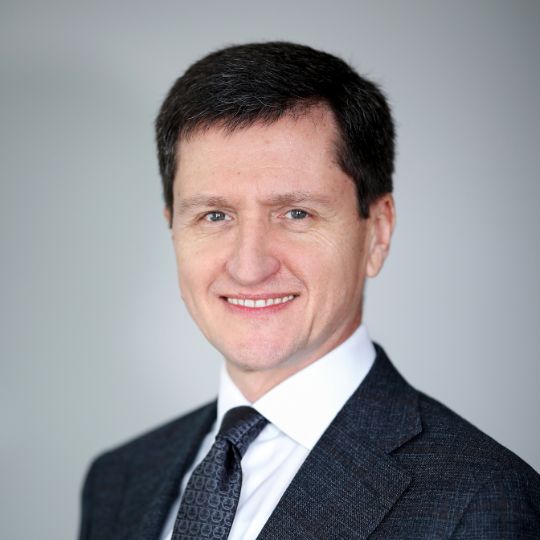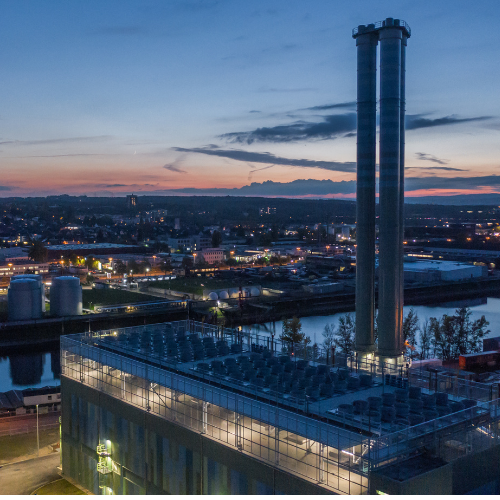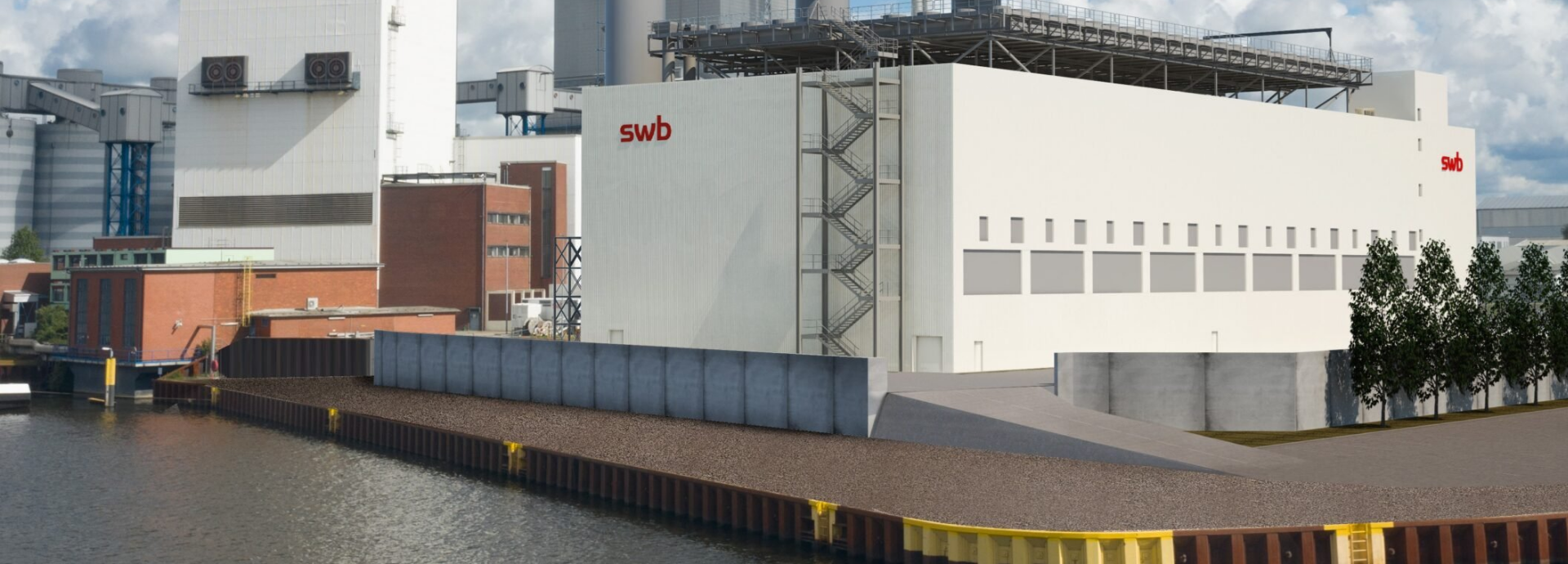
District heating plays a crucial role in accelerating decarbonisation by providing a flexible, integrated, and renewable-based energy system.
District heating is a profitable pathway to net zero.
It is an underutilised flexible energy solution for Europe to achieve cost-effective decarbonisation when used with Combined Heat and Power (CHP) engines.
It has vast potential to drastically scale renewable energy usage by drawing on various renewable and low-carbon heat sources, thus reducing dependency on fossil fuels.
Flexible solutions to advance low-carbon district heating & power generation
This report showcases ways to decarbonise fossil (particularly coal) based district heating systems in a commercially viable way and the role flexible generation technologies (particularly gas-engines) could play in this transition, while identifying roadblocks to decarbonisation in the fields of market structure, regulation, capabilities and market trends.
The study establishes the stack of revenues available for internal combustion engine combined heat and power installations (ICE-CHP):
- Heat sale revenues
- Electricity wholesale market revenues (incl. longer-term flexibility)
- Provision of ancillary services (aFRR/mFRR)
- Revenue from capacity remuneration mechanisms (CRMs)
- Congestion management revenues
- Subsidies
Webinar: Decarbonising district heating and cooling: a profitable pathway to net-zero
Combined heat and power technology
With its district heating technologies, Wärtsilä is at the forefront of the transition towards a 100% renewable energy future and helps to accelerate to the most reliable, cost optimal, and net zero energy future.
Sector coupling of district heating and power systems plays an increasingly important role and is transformative for Europe’s energy future. Combined heat and power engines and flexible technology like heat pumps optimise energy use. They dynamically select between heat and power production technologies to adapt to market prices, maximising economic returns. For example, when renewable energy is abundant, heat pumps and electric boilers absorb the extra energy. When solar and wind are low, these engines produce heat for cities and power for the grid, keeping energy supply reliable.
The Wärtsilä Combined Heat and Power (CHP) plant is a cost-effective and innovative solution where total efficiency can exceed 90%. The most common heat products are hot water or steam, which makes it perfect for both industrial and district heating purposes.
Related technologies
Get in touch with our District Heating expert
"District heating has untapped potential in Europe to be a profitable pathway to net zero. It is more than just heating homes – it is about enabling renewable energy growth, offering flexibility, and creating a viable solution for coal-dependent countries transitioning to cleaner energy."
Igor Petryk
Market Development Director
Wärtsilä Energy

References
Articles
Press releases
CHP plants for district heating in Hungary
Wärtsilä Corporation has received contracts to supply gas-fuelled generating sets and associated equipment for two combined heat and power (CHP) plants in Hungary.
One plant is to be located at Füredi út in Budapest. The main contractor is Kraftszer Kft., a Hungarian engineering company which has built a number of CHP plants, and the plant will be owned by Zugló-Therm Energiaszolgáltató Kft. Wärtsilä is supplying three Wärtsilä 18V34SG generating sets to give a combined electrical output of 18,000 kW. The generating sets will be provided with heat recovery systems to gain also 16,500 kW as hot water for district heating. The hot water will be distributed by Fötáv Rt., the main district heating utility in Budapest. The plant is due to be handed over in June 2005.
The second plant is at Újpalota, also in Budapest. For this plant, Wärtsilä is supplying three Wärtsilä 20V34SG generating sets. They have an initial, combined electrical output of 19,995 kW with the possibility of it being increased to 24,000 kW. Heat recovery from the engines will initially provide a further 18,960 kW as hot water for district heating, with a possible increase to 23,000 kW. The plant is being built by CHP-Invest Kft. and EGI Contracting and Engineering Co Ltd, and it will be owned by CHP Erőmű Kft. Again the hot water will be supplied to Fötáv Rt. The plant is also due to be fully operational by June 2005.
In both cases, the emphasis is on the supply of hot water for district heating with generated electricity being supplied to the public grid. In Hungary this kind of CHP plant is required to have a minimum total efficiency of 75% each month. Wärtsilä’s solutions for the above two plants readily exceed this requirement.
The engines will run on natural gas. They thus combine high efficiency with low exhaust emissions. With the addition of heat recovery for district heating, the plants have overall energy efficiencies of about 82 per cent.
As an example of the scope for such CHP plants, the Újpalota plant serves a suburban area in Budapest in which practically all buildings are connected to the district heating network. There are about 30,000 apartments, together with shops, schools, medical care facilities, administrative buildings, etc. In the summer, the Újpalota plant will provide all necessary heating for the area and during the coldest winter days it will meet about 10–15% of heating demand with the balance being supplied by the existing hot water boiler plant.
Notes to the editor:
Wärtsilä is The Ship Power Supplier for builders, owners and operators of vessels and offshore installations. We are the only company with a global service network to take complete care of customers’ ship machinery at every lifecycle stage. Wärtsilä is a leading provider of power plants, operation and lifetime care services in decentralized power generation. The company provides power plants for baseload, peaking, and combined heat and power applications. Wärtsilä also supplies complete solutions for mechanical drives applications onshore and offshore. The product range comprises gas- and oil-fired power plants with outputs from 1 MW to 300 MW, biopower plants with outputs from 1 to 5 MWe and biothermal plants for 3–17 MWth.
Wärtsilä is headquartered in Helsinki with representatives in more than 60 countries. Production facilities are located in Finland, Norway and Italy with assembly plants in Spain and India.
Wärtsilä supplied more than 1,100 MW of power generation equipment around the world in 2003.
For further information, please contact:
Yvonne Rönn
Public Relations Manager, Power Plants
Wärtsilä Finland Oy
Direct tel: +358 10 709 1456
Direct fax: +358 10 709 1425
e-mail: yvonne.ronn@wartsila.com
Internet: www.wartsila.com
John Goss
Ceejay Global Communications
Tel: +852 2609 0691
Fax: +852 2609 1351
Mobile: +852 6125 2609
e-mail: john@ceejay.com.hk



.tmb-448x262.png?Culture=en&sfvrsn=7d8ce645_2)





